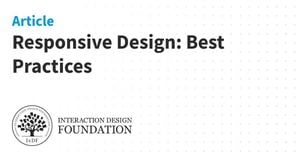February 2025 is shaping up to be an exciting month for automotive enthusiasts, as several major developments surface from key players within the industry. From innovative new vehicle models to strategic expansions by leading automakers, the automotive scene is buzzing with activity.
According to BitAuto, GAC Trumpchi has officially announced the release of its new series of vehicles, designated the Trumpchi Xiangwang, which is set to make its debut on March 7, 2025. This much-anticipated lineup will consist of four distinct models, including the GAC Trumpchi M8 Qian Kun, expected to be MPV, and the Trumpchi S7 Qian Kun SUV. Notably, one of the models will be the production version of the 1 Concept, born from the collaborative innovation initiative involving both Trumpchi and technology giant Huawei.
The new models showcase a range of design optimizations based on the existing Trumpchi M8 Master series. Visual highlights include an imposing central grille adorned with chrome accents, intended to project sophistication and elegance. An on-trend design component incorporates aerodynamic elements, such as the popular floating roof effect, as well as practical enhancements like electric sliding side doors. Initial spy photos suggest the vehicle’s rear will feature simple yet effective taillight designs.
While much anticipation surrounds the aesthetic aspects, performance details remain tantalizingly unclear. Rumors suggest the new models may feature plug-in hybrid technology, but offical specifications have yet to be disclosed.
Meanwhile, Lantu—a rising player within the automotive sector—has also shared significant news. Sources reveal the Beijing-based company is preparing to expand its office spaces to accommodate new developers, particularly following discussions with Huawei. Although initial reports suggested the placement of Huawei's development teams within Lantu, the reality appears to center around the adoption of Huawei's Integrated Product Development (IPD) model. This will involve hiring additional teams to support various technological advancements.
2025 is gearing up to be pivotal for Lantu as it aims to add around 500 new positions focused on areas such as smart driving and digital cockpit innovations. "Artificial intelligence and digital innovations will be key areas of focus in 2025," emphasized the source, reflecting Lantu's commitment to adapting and advancing within the rapidly changing automotive market.
Within its current ranks, Lantu boasts numerous employees who previously worked at prestigious automotive firms like Tesla and Li Auto, enhancing its expertise and competitive edge. Earlier this year, Lantu reportedly reached out to 400 members of the Jiyue Intelligent team, extending job offers to 20% of them, showcasing its proactive approach to talent acquisition.
Expanding research divisions have been established across key Chinese cities, including Beijing, Shanghai, and Wuhan, now numbering over 1,000 members. These teams focus on intelligent cabin technology, digital systems, and voice technology development. With the planned recruitment, Lantu aims to enlarge its research workforce to around 1,500 by the end of 2025.
Notably, Lantu has proclaimed its strategy of "self-development" of technologies coupled with collaborative efforts. Recent advancements include the OTA 2.0 update for the Xiaoyao cabin, which boasts more than 1,000 functions created by the company itself. Complementarily, the recently launched Dreamer model incorporates Huawei QianKun ADS 3.0, promoting advanced intelligent driving capabilities from starting to parking.
These developments from GAC Trumpchi and Lantu signify not just corporate growth but also reflect broader trends within the automotive market aimed at enhancing consumer experiences through technology and design enhancements. The future looks promising for these companies, steering them toward innovation and success amid fierce competition.
Automotive enthusiasts and consumers alike will surely be watching closely as these new models hit the market. What remains evident is the shifting paradigm within the automotive industry, heavily influenced by digitalization and technological partnerships.



